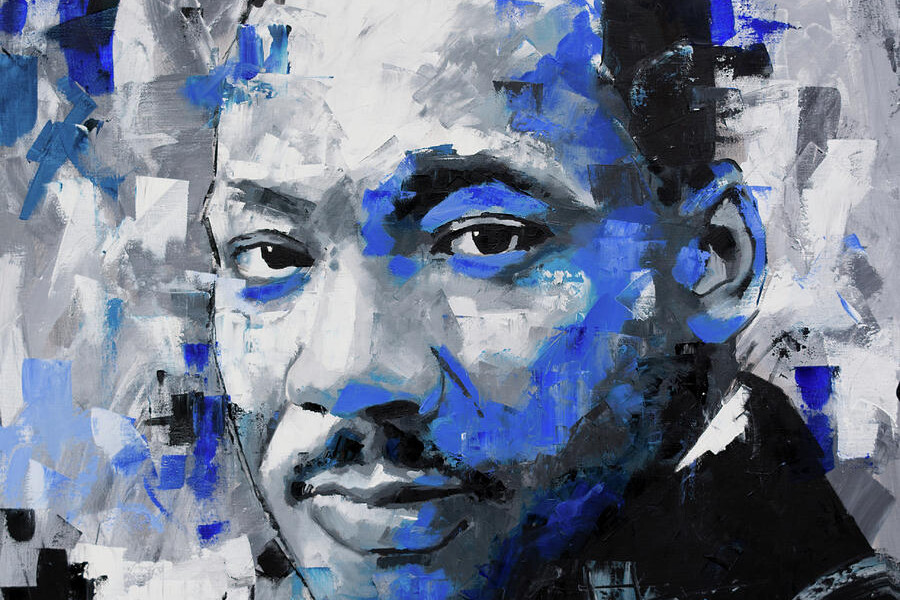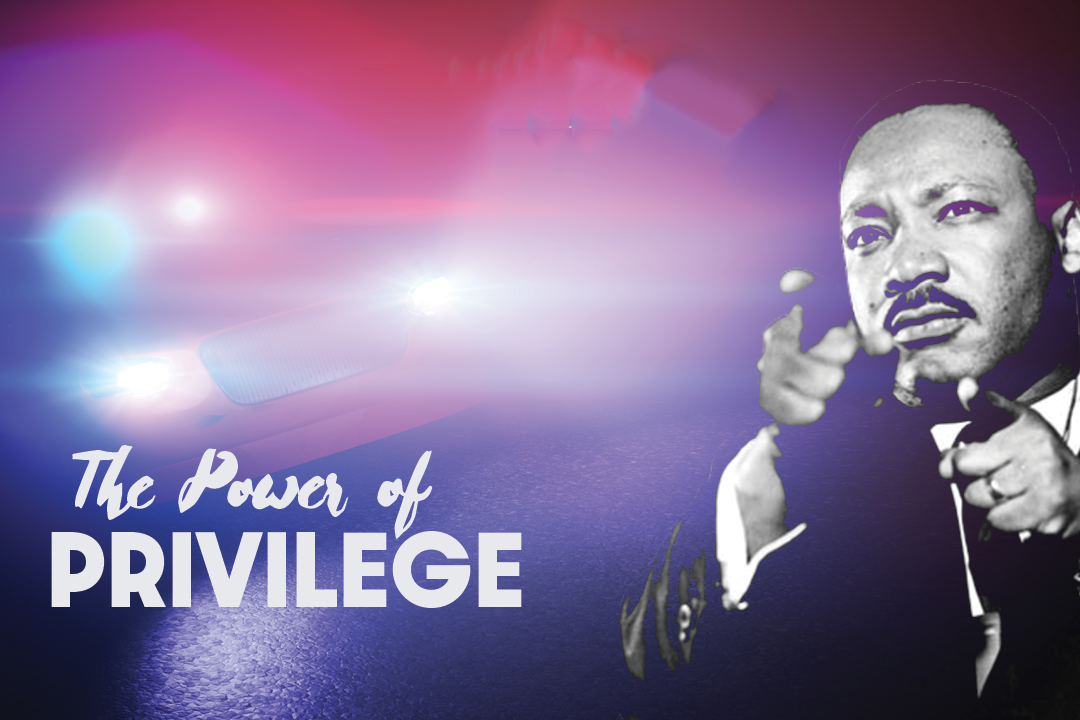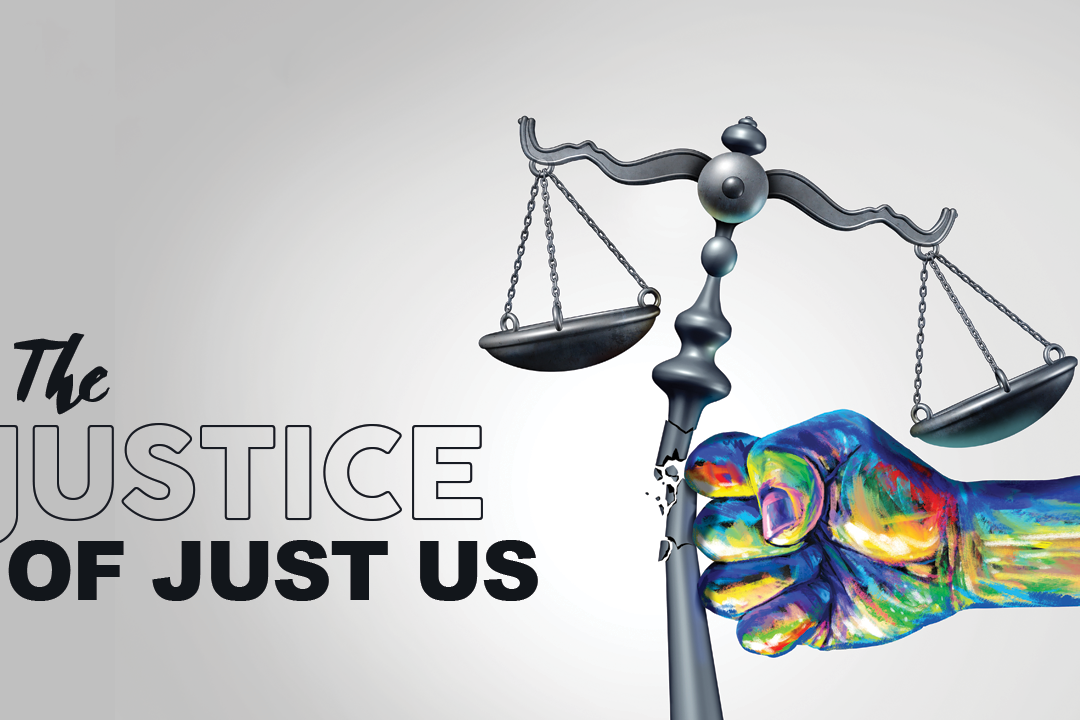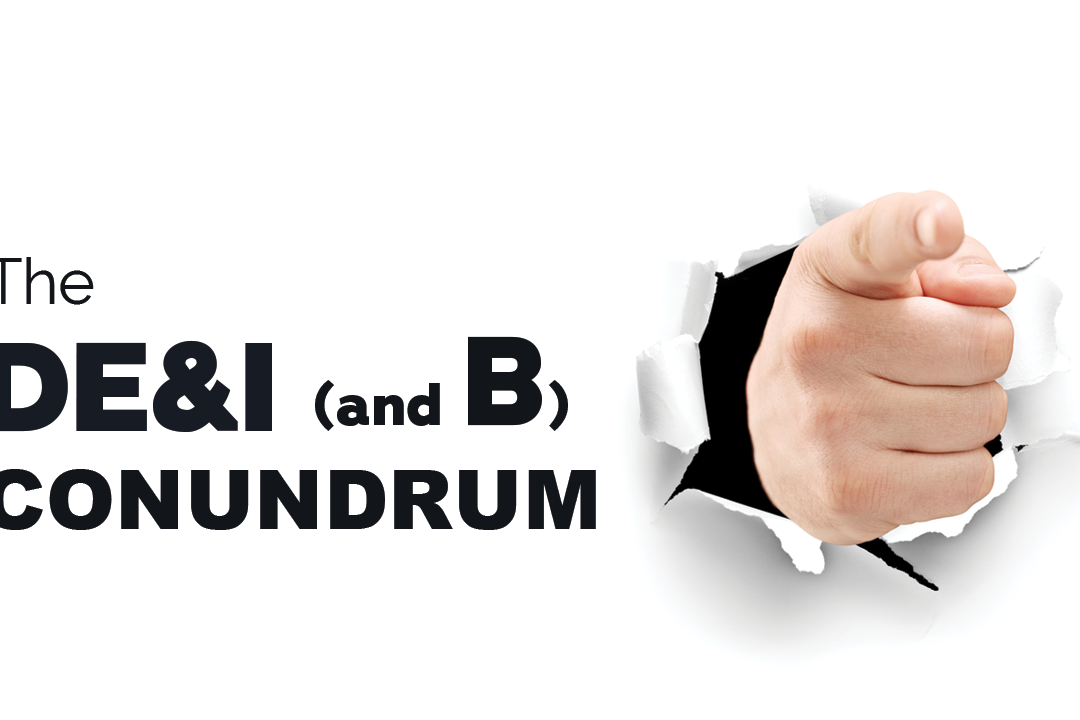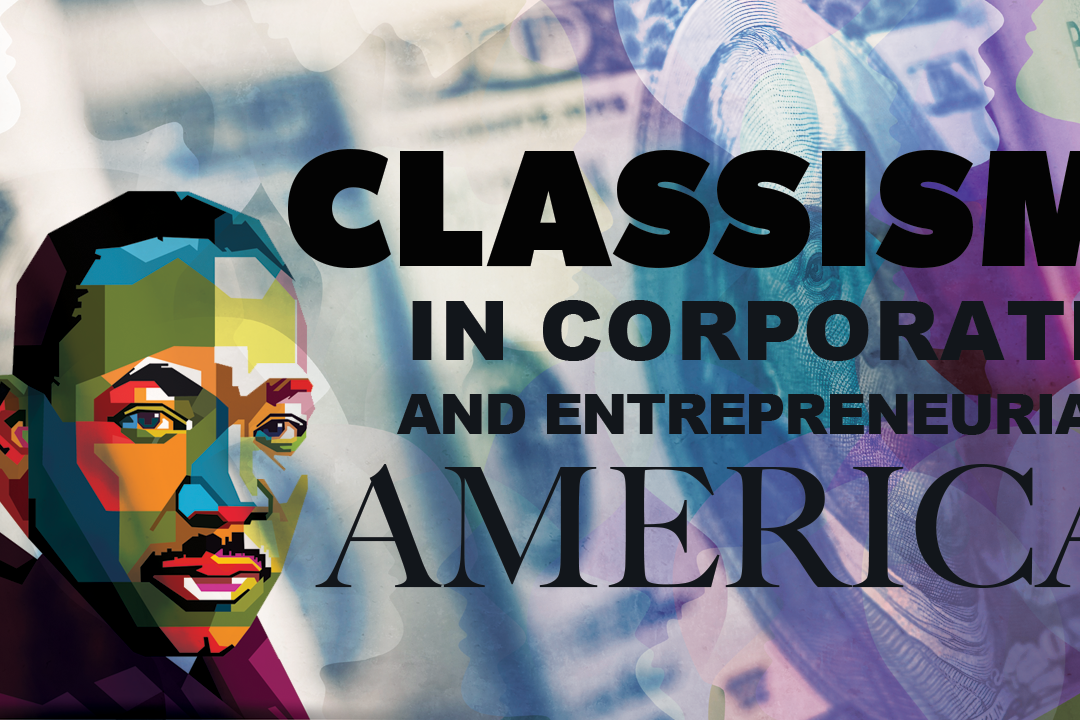MLK Installment #2
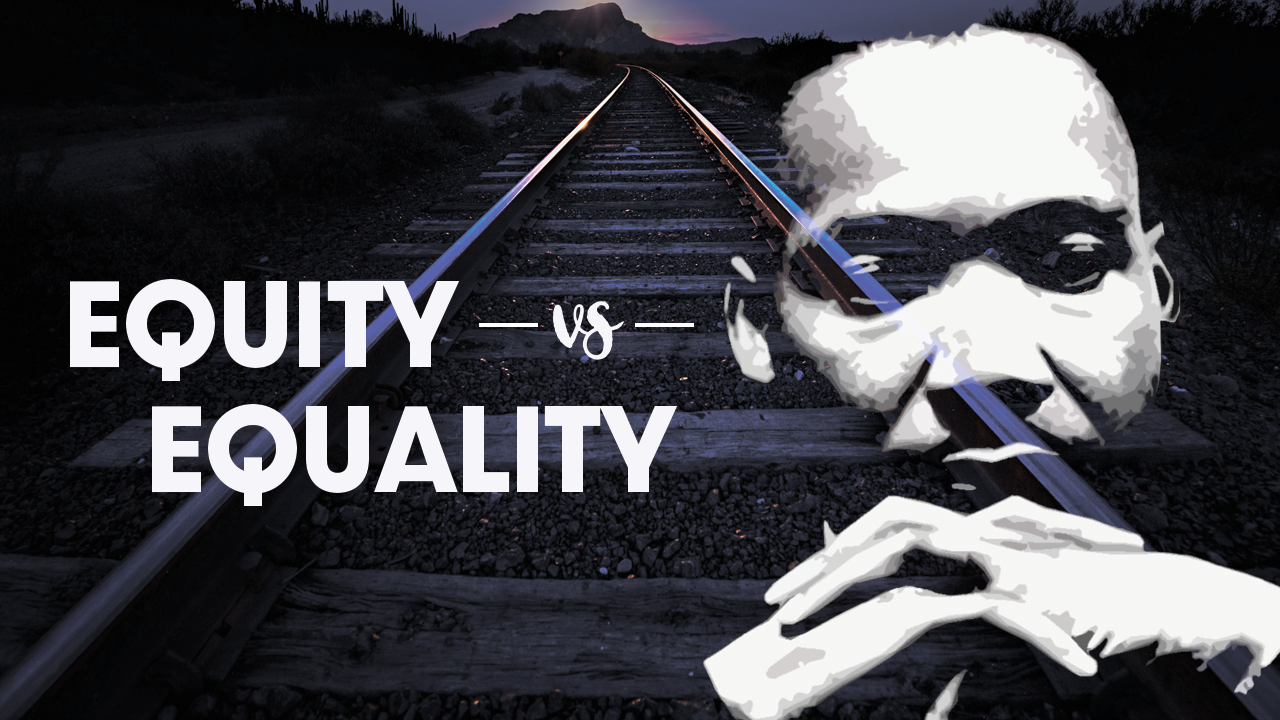
Equity vs. Equality: What Do People of Color (POCs) Really Prefer and Desperately Needs
In the first article of this installment series celebrating the life and legacy of Dr. Martin Luther King, I discussed the hot-button topic of privilege. That controversial trend line will continue here, albeit at a much steeper grade. Before getting started, I have a confession to make: I am a man without a political party. I grew up rooted in Democratic ideology as a fatherless welfare recipient (I still carry around a three-decade old food stamp in my pocket!), converted to Republicanism, more precisely, an in the closet Republicrat, as a former and retired NBA player. But now, I find myself in political purgatory, disenchanted with the leadership and direction on both sides of the aisle as we, all of us, by and large, obfuscate the responsibility to play our part in helping all boats rise in every sphere of color-coded America. And yes, we must accomplish this arduous task TOGETHER without scoring political points in the process. A frank discussion and framework-driven game plan are essential — without pointing fingers — to move the opportunity ball forward for black and brown Americans who feel (and are being) left behind.
Let’s go deeper into the equality-versus-equity conversation. I conducted a poll in 2022 within my social circle across financial, professional, religious, gender, and even life-experience lines. The sample size was small: 50 African Americans. Now, we’re not as monolithic as some political pundits describe our race. However, most blacks working in the public or private sector over the age of 30 are Democrat (voting roughly 90 percent of the time for “the party of POCs”), incredibly resilient in spite of the obstacles behind or in front of us, a component of our ancestral DNA, and lastly, quite disillusioned by the chase. The American Dream has been elusive for blacks. We were, and in many cases still are (outside of collegiate/professional sports, entertainment, and politics) treated as third-tier citizens — whites, others, then blacks with ties to American slavery. We were promised 40 acres and a mule (stop holding your breath black folk!) We were emancipated as slaves in 1865, but how many of us live as truly liberated people in 2023? This is rhetorical; very few of us, though we make up approximately 13 percent of the population. As our revered echo chamber often likes to say, Jesse Jackson, “Keep hope alive.” Sounds good in theory, but what about in application? Hype is good (it brings awareness), hope is better (it breeds confidence), but help is best (it brands justice). Bring. Breed. Brand. Our reparation moment is now! We don’t want to be viewed as a perpetual charity case, but where’s our empowerment train? Enter meaningful dialogue on two contentious issues: equality and equity.
I texted this intentionally bifurcated, two-sided question to each poll respondent:
If you had to pick just ONE, would you as an African American prefer EQUITY (economic “skin in the game” in comparable or greater proportions than whites absent racial equality) or EQUALITY (racial parity into mainstream society to the same degree as whites but without financial equity)? Please explain your rationale.
Here are the results. Roughly 70 percent of respondents selected equity, and approximately 30 percent chose equality. (Unfortunately, the black experience in America has been fraught in making difficult choices within an either-or context, which may explain why we automatically default to this paradigm shaft, not shift, in matters tied to race.)
Not all are highlighted, but poll respondents shared the following explanations, insights, and comments. For the sake of brevity, I’ve taken liberty to condense some of them:
“I’m going with ‘skin in the game.’ Let me get the bread, the resources, and a better network, and I’m good. With street smarts, thick skin, and the right tools, and most importantly, the Lord Jesus Christ on my side, I can’t be stopped. And equity is my legacy game as a father of five!”
— J.T., Brother in the Struggle
“Equality for me because I’ve been in situations where white counterparts and I had the same rank, job title, and work responsibilities but I was paid less.”
— M.A., Teacher’s Aid (Public Elementary School)
“The answer has to be Equity! That is what was needed in the first place. Segregation is less of an issue when economic resources are plentiful in the black community. If you have equity, then you can eventually reach for equality.”
— L.C., Physician
“Equality for me. With this under your belt, you can create your own equity.”
— G.A., Barber
“Equity! Enough said.”
— News Anchor
“Equality. The equity piece is way too late for the majority of our people! We’re born without the silver spoon of family wealth — if you catch my drift. Equality is more achievable; it’s still a steep hill to climb, though!”
— R.T., Corporate Executive
“Equity dominates American financial systems in that money doesn’t see color, only the results of having it, or in most cases, not having enough of it.”
— G.L., Public Civil Servant
“This is tough; it’s a bit of a false dichotomy. Choosing one option assumes the other option is unachievable or false. With that disclaimer, I would cautiously choose Equity. In America, financial parity or financial excess allows for acceptance. While acceptance is not equality, I will take that, along with the money!”
— L.F., Attorney
“EQUITY. Equality simply gives you a seat at the table. But with equity, I have the ability to build many tables and create opportunities for others to succeed also.”
— K.C., Entrepreneur
“Equality has been more important in history to us because it’s the reason equity hasn’t been accomplished to a meaningful degree in the black community. We’ve never been seen as equal to our white counterparts, especially in corporate America. There was a time when we weren’t even considered a full person, and from this, our rights have been constrained ever since. Many of the systems put in place centuries ago, without significant change, have caused inequities that are still being felt today.”
— K.B., Vice President
“Equity. People behave differently when ‘skin is in the game’ vs. ‘being in the game because of your skin.’ Equal opportunity in basketball is this: everyone plays the same minutes. In regard to equity, coaches work with each player to strengthen areas of deficiency and proficiency. We’re equitable in how we treat and prepare the kids, but outcomes and playing time are usually determined by their efforts, not the coaches. The best players receive the bulk of the on-court minutes, unless your dad is the coach :)”
— S.B., Basketball Coach and Business Owner
“Equality. We aspire to be on the same level as white people, We get degrees and work just as hard as them, but they still look down on us because of the neighborhood we live in or the color of our skin.”
— A.B., Government Employee
“I want equity big bro. I’ve went years seeing blacks, for the most part, with no ownership. We are always shortchanged. They, white people, make their equity off of us. I have been in the real estate game for over a decade now. With the equity play, I can pass real assets down to my kids, which makes all the BS worth it. Thanks big bro for challenging me personally, financially, and socially.”
— D.M., Ex-OSU Football Player and Current Business Owner
“Definitely Equity. Financial resources in America are essential, the lifeblood and engine that make this country run. With regard to Equality, the system is dependent on inequity to function.”
— T.A., Vice President (Inner-City Public High School)
“We need both, but I lean more to the equality side. White men do not have to distinguish or choose between the two. What every citizen deserves, regardless of color, religious beliefs, or sexual orientation, is a fair and balanced shot at the American Dream. Provide me with both options; whether I fail or succeed, I was given a fair shot!”
— T.H., English Teacher (Inner-City Public High School)
You’re probably wondering, “What was your response Mr. Fundy?” Glad you asked. This might sound arrogant, and I certainly don’t feel this way now (thanks to an ample supply of the Lord’s humble pie). But for decades, starting at the age of nine, I never felt that whites were on my level intellectually. In my mind, I had no equals in the classroom. Thus, equality from an educational and even intrapersonal (or self-talk) point of view were never on my radar. In spite of being a black man with a built in away uniform. In spite of growing up in abject poverty and being told by neighborhood peers, in these exact words, “You ain’t never goin’ to be nothing but a poor kid from the ghetto.” In spite of being reared in a home without the other half of my paternal DNA present. The shackles of racial orthodoxy still exist, but I never allowed them to be placed around my ankles because of what’s in my mind and spirit. White slave owners knew back then what is intuitively still the case today: an educated black man or woman or child with an unshakeable resolve was (or is) an empowered soul. The body can be enslaved, but the mind is the key to freeing an embittered disposition. Equality is qualitatively subjective; it’s a heart issue. Equity on the other hand, is quantifiably objective. It can be measured by head and hunger initiatives.
Equality-equity discussions make some people incredibly nervous, depending on which side of the Robin Hood ledger account one falls. Taking from the rich to improve the prospects of the poor is how some critics read the situation. To a varying degree, their critique has validity. Sleight-of-hand tricks are unethical, regardless of an individual’s, family’s, or company’s balance sheet. Close friends of mine, affluent white families who are also staunch conservatives, have huge problems with the term equity outside of their well-insulated bubble. They assume it means equitable outcomes, or the implementation of a referee system to right the wrongs of historical transgressions (think slavery and Jim Crow) and widening net worth disparities (look these up by race; they’ll shock you!) Perhaps in the playbook of some social justice scorekeepers, but not in mine. Equity is elusive to the vulnerable, but exclusive to the venerated. Also known as the wealth accumulation stiff-arm of capitalism, this is what separates lane groups. It typically escapes the grasp of underdog lanes (aka the underclass), enlightens and frightens comfort zone lanes (aka the middle class), and extends the grip of inside lanes of privilege (aka the super upper class). I will expound upon classism in the last article of this series, mobility. Here’s a typical conversation I often have with “equity critics” from right-leaning, affluent backgrounds:
Me: In light of the protest movement and the George Floyd fallout, what are your thoughts on equity from a social justice point of view?
Equity Critic: It’s incredibly divisive and counterproductive in uniting people. Wouldn’t you agree?
Me: It can be, depending on how the narrative is spun. But why run from a term, equity, that you embrace on a daily basis? You have equity in your primary and secondary residences. You have equity in your investment accounts. You have equity in your multiple businesses. You have relational equity with your family members, most of whom, I’d imagine, are highly successful. You have equity with your extensive network of like-minded power brokers who, like you, can navigate every sphere of influence with relative ease.
Equity Critic: Well, I’ve never looked at it from that perspective before.
In closing, semantics matter a great deal when human dignity and earning a humanely dignified wage are on the line. Equity, as the “Brother in the Struggle” highlighted, is a legacy play. And every individual as a citizen of these United States should have the guarantor’s opportunity (but not the guaranteed outcome) to secure it. Life. Liberty. Pursuit of Happiness. Didn’t our founding fathers endow these attributes on all of us? For underdog lanes of color, what equity pathways can they pursue with your/my/our assistance? We must help them win the mental health game while wearing a permanent away uniform — black or brown skin — in color-coded America. We must offer to be their voice of comfort and civility in the face of injustice. We must help them develop mindsets and build skillsets for sustainable, employment purposes. We must help them lead when their leadership role models on the home-front, notably paternal seed bearers, are inconsistent or absent. We must help them amass legacy wealth, one opportunity brick at a time. Alongside my wife Monya, this is why we started our nonprofit organization and for-profit enterprises more than 20 years ago. To provide black and brown Americans with a comfortable and convenient seat at the equity table next to their white counterparts. Remember the sit-in (really sit-down) protest by four black college freshmen at a “white’s only” Woolworth’s lunch counter in Greensboro, North Carolina, on February 1, 1960? Stay tuned for the next article under the macroscope: justice. It, too, will likely be an uncomfortable and hopefully enjoyable read for you.


